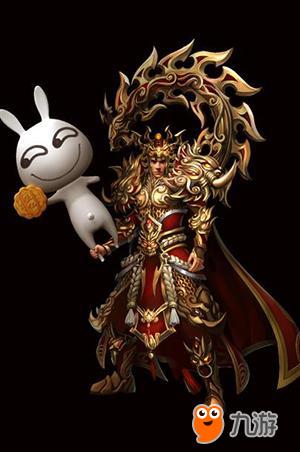今日新开传奇网站发布_3000ok传奇sf最新发布站_zhaosf官方传奇发布网
天骄开区网
- admin 2024年10月11日0
Chuanqi: Traditional Chinese Stories, Legendary Narratives, Cultural Significance
The term "Chuanqi," which translates to "transmitted wonders," often describes a genre of Chinese literature that encompasses a rich tapestry of traditional stories and legendary narratives. These tales frequently intertwine fantasy and elements of the supernatural, reflecting the cultural heritage and philosophical musings of the times in which they were told. Originating in the Tang and Song dynasties, Chuanqi played a pivotal role in the development of narrative styles that influenced later literature and storytelling methods. The transition from oral storytelling to written forms helped cement the importance of these tales within Chinese culture. Each story in this genre carries with it a multitude of meanings, often serving as vehicles for social commentary, moral lessons, and historical reflection.


With their intricate plots and diverse characters, Chuanqi tales invite readers to explore themes of love, loyalty, justice, and the eternal struggle between good and evil. The magical and often absurd circumstances within these narratives illustrate a world where the boundaries between the natural and supernatural blur, making for compelling reading. Notable works, such as "The Peony Pavilion" and "The Butterfly Lovers," exemplify the emotive and dramatic qualities characteristic of Chuanqi literature. Furthermore, these stories often highlight the cultural nuances of the time, revealing insights into societal values, norms, and the complexities of human nature. As modern readers engage with these stories, they not only enjoy the artistic expression but also gain a deeper understanding of the historical context and cultural significance behind each narrative.
The Evolution of Chuanqi and Its Role in Chinese Literature
The evolution of Chuanqi is a fascinating journey that offers insights into the changing landscape of Chinese literature. During the Tang dynasty, Chuanqi began to flourish as poets and playwrights sought to craft stories that appealed to the increasing literacy of the populace. The popularity of storytelling spread, notably in urban centers, where entertainment forms began to diversify. As the genre matured during the Song dynasty, Chuanqi works became more elaborate, with an emphasis on character development and thematic depth. This period marked the emergence of a distinct storytelling tradition, uniting various regional styles and fusing them into a cohesive narrative approach.
As literature underwent further transformations in subsequent dynasties, Chuanqi continued to adapt, incorporating elements from theater, folklore, and historical records. The richness of Chuanqi stories showcases a blend of influences that resonate even today. This adaptability has allowed the genre to remain relevant, inspiring contemporary writers and artists. In modern literature and cinema, the elements of Chuanqi can be observed in narrative structure and thematic explorations, proving its lasting legacy. As readers of today explore this genre, they not only trace back through time but also preserve the essence of these invaluable stories that articulate the human experience across generations.
Exploring Themes in Chuanqi Narratives
The narratives found within Chuanqi are characterized by several recurring themes that reflect the philosophical and cultural values of Chinese society. One of the most prominent themes is the duality of fate and free will, a philosophical inquiry that permeates many literary works from this genre. Characters within Chuanqi stories often grapple with destiny, facing challenges that test their strengths and resolve. Their journeys illustrate the complex interplay between personal choices and the overarching forces of fate that dictate their lives.
Another significant theme in Chuanqi is the exploration of love and relationships. These tales frequently depict the trials and tribulations that lovers confront, often amid societal expectations and familial obligations. Through these narratives, remarkable moments of connection and sacrifice emerge, revealing the timeless nature of human emotions and experiences. The blending of fantasy and reality serves to amplify the intensity of these themes, inviting readers to reflect on their own lives and relationships. As these narratives are shared and passed down through generations, they continue to resonate, contributing to a collective understanding of love, sacrifice, and the inexorable march of time.
Q&A
Q: What is the historical significance of Chuanqi in Chinese literature?
A: Chuanqi holds significant historical importance as it showcases the transition from oral traditions to written narratives. It reflects the cultural values and social issues of the times, offering insights into the philosophical underpinnings of Chinese society. Moreover, it serves as a foundation for narrative development in later Chinese literature, maintaining its influence on contemporary storytelling.Q: How do Chuanqi themes resonate with modern audiences?
A: The themes found in Chuanqi, such as the exploration of love, fate, and moral dilemmas, continue to resonate with modern audiences due to their universal relevance. The emotional depth and complexity of these narratives allow contemporary readers to connect with the struggles and triumphs of characters, making them timeless pieces of literature that speak to the human condition.
文章内容页下在线分享
Chuanqi: Traditional Chinese Stories, Legendary Narratives, Cultural Significance
Powered By 2020-2025 Theme By 网站地图
评论列表: